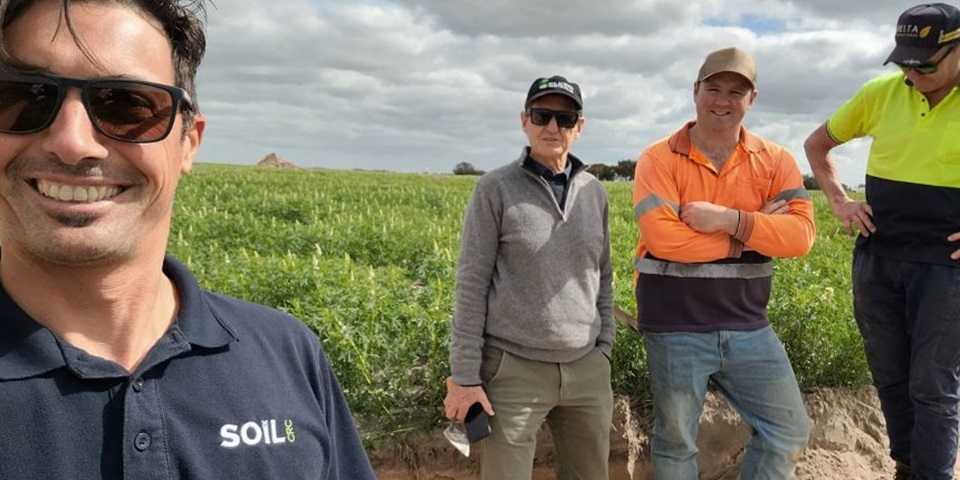News
Crucial soil research extended to help Aussie farmers survive drought

Murdoch University researcher Dr Luca De Prato has witnessed firsthand the plights farmers face as climate change and unpredictable weather conditions continue to impact their livelihoods.
Dr De Prato has in turn dedicated his research to improving soil resilience, and a new federal government grant will allow him to lead the first long-term trials to evaluate drought resilience in farming systems across Australia in collaboration with Soil CRC.
With Australia “carrying the weight of the world in terms of food security”, Dr De Prato said the research would not only benefit farmers, but the wider community, and with fertiliser costs and cost-of-living skyrocketing, the time for the research was now.
"Playing with climate change, droughts, floods and everything that's coming – this project is trying to help build knowledge on soil drought resilience for the future,” Dr De Prato said.
“Building resilience in farming systems and soils to endure and recover from more frequent and extreme events is critical for Australian farms' financial viability and sustainability and the vitality of rural communities."
With most trials in the farming industry only being funded for 2-3 years, Dr De Prato said this extension would allow for a "proper six-year, long-term approach of multiple subsoil constraints in different environments and conditions Australia-wide for understanding drought resilience in different farming systems using amelioration techniques".
He added that subsequent knowledge gained from the additional years would help to increase research knowledge, reducing the effect of yearly seasonal variability of the field trials, with soil amendments needing time to change soil properties such as organic matter, infiltration rates and water-holding capacity.
Among the methods tested will be mechanical and plant-based solutions as well as conventional and novel soil amendments using the latest technologies and instruments such as soil probes to test soil moisture and temperature continuously throughout the cropping season.
There will also be new farming machinery to mix soil and drone and satellite imagery coupled with AI modelling software.
"The problem in the WA Wheatbelt, in general, is the low capacity of maintaining soil moisture," Dr De Prato said.
He said multiple subsoil constraints such as limited water retention, soil acidity, low nutrient holding capacity and soil carbon in soils were key focuses of soil researchers and farmers.
Data collection will also note the impacts of multiple soil types with varying levels of drought risk, and the five-year extension will mean a more extensive assessment of the risk than previously allowed.
Dr De Prato said people often didn’t understand the reach of the problem, including the limited funding and amount of work farmers did.
They work 24/7 - they are always there. There is no taking off holidays like we can – they really care.”
He said one farmer who had taken part in the studies had put the importance of the research into perspective when he said his soil was his “legacy”.
“If he can leave his farm better than he got it, the soil, that will be his legacy,” Dr De Prato